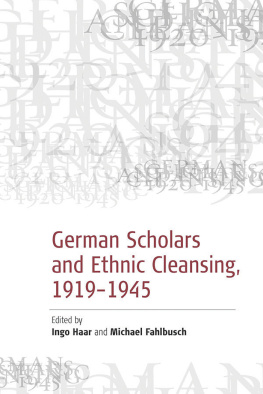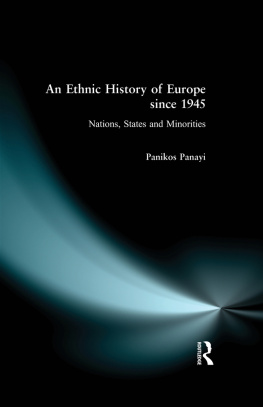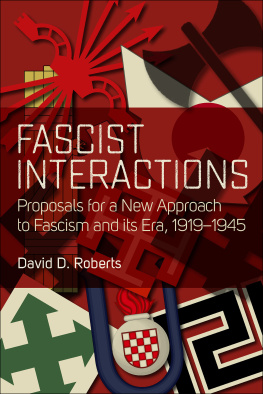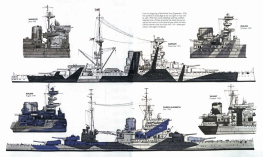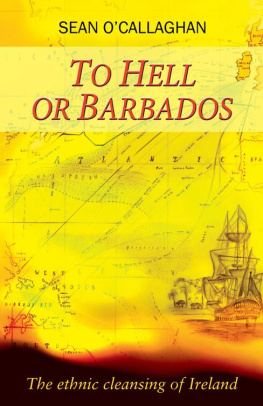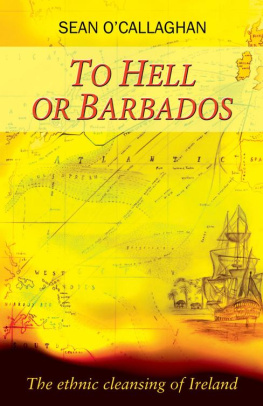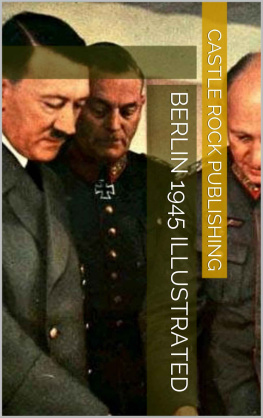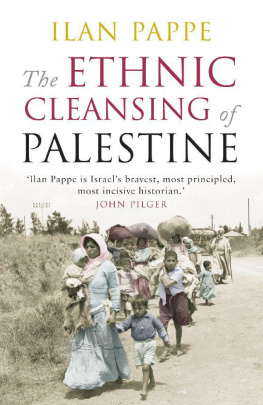Published in 2005 by
Berghahn Books
www.berghahnbooks.com
2005, 2006, 2007 Ingo Haar and Michael Fahlbusch
First paperback edition published in 2006
Hardback edition reprinted in 2006
Paperback edition reprinted in 2007
First ebook edition published in 2013
All rights reserved.
Except for the quotation of short passages
for the purposes of criticism and review, no part of this book
may be reproduced in any form or by any means, electronic or
mechanical, including photocopying, recording, or any information
storage and retrieval system now known or to be invented,
without written permission of the publisher.
Library of Congress Cataloging-in-Publication Data
/ edited by Ingo Haar
and Michael Fahlbusch; foreword by Georg G. Iggers.
p. cm.
Includes bibliographical references.
ISBN 978-1-57181-435-7 (alk. paper) -- ISBN 978-1-84545-048-9 (pbk. : alk. paper) -- ISBN 978-0-85745-705-9 (ebk.)
1. Political cultureGermanyHistory20th century. 2. Germany Ethnic relations. 3. GermanyRace relations. 4. RacismGermany History20th century. 5. GenocideGermanyHistory20th century. I. Haar, Ingo. II. Fahlbusch, Michael.
DD238.G39 2004
2004047674
British Library Cataloguing in Publication Data
A catalogue record for this book is available from
the British Library.
ISBN 978-1-57181-435-7 paperback
ISBN 978-1-84545-048-9 paperback
ISBN 978-0-85745-705-9 ebook
FOREWORD
Georg G. Iggers
It is striking how little has been done in West Germany to examine the role of the historians in the Nazi period and their participation in the genocide, much less so and much later than in some other academic disciplines. The leading historians in the post-1945 period emphasized that the bulk of German historians continued to be honest scholars and remained aloof from the regime. Werner Conze, one of the most important historians and mentors of the post-1945 generation of West German historians, still commented in 1983 that a serious confrontation [Auseinan-dersetzung] with Nazi historiography was not necessary because the few Nazi historians had either died or lost their positions, Rothfels, despite his Jewish origin, was close to Nazi positions of ethnic expansion in the East and left Germany only very reluctantly after his applications for honorary Aryan status were turned down despite Joachim von Ribbentrops support. All this points at areas of consensus between a broad spectrum of established historians and National Socialism.
Yet just as there was the image of the clean Wehrmacht innocent of war crimes, there was also the picture of an academic discipline that kept apart from the Nazi Party and pursued objective scholarship. Still relatively recently a dissertation written at the University of Frankfurt argued that there was an inseparable gulf between the conservatism of the broad majority of German historians and Nazi ideology, and that as a rule the historians remained faithful to their scholarly ethos.
The great contribution of this volume is that for the first time it makes available to an English reading public the results of the extensive scholarship of the last decade and a half on the role that German scholars played in the programs of ethnic cleansing. A good deal of new material became available with the opening of East German archives after 1989, but already much had been readily accessible in West German archives and simply ignored. It is also striking how little East German scholarship utilized the sources on this topic contained in its archives. A first important work on the role that scholarship played in the planning of ethnic cleansing was published in English, Michael Burleighs Germany Turns Eastwards: A Study of Ostforschung in the Third Reich.
An important contribution of Ingo Haars dissertation Historiker im Nationalsozialismus, Clinging to a classical historical outlook (Historismus), they rejected any approaches that replaced the focus on leading individuals and political events, and vigorously rejected the turn to social history in the historiographies of Western countries as nonidealistic and collectivistic, even Marxist.
But on three important points the new Volksgeschichte differed emphatically from the established historiography that it considered outdated. For it, the center of history was the Volk, conceived not as a people in a democratic sense but as an ethnic community in biologistic, racial terms. In the place of the struggle between states for hegemony, the young neoconservatives now saw an embittered conflict between ethnic communities and posited the cultural and racial superiority of the Germans over all other ethnic groups in Eastern, and for that matter also in Western, Europe. They now radicalized the political assumptions of the academic historians for whom Germany was a political unit whose natural borders were those of 1914, possibly with the addition of post-1918 Austria, and sought an expansion of German borders far to the East to include all territories where German minorities lived as well as others that at one time or other had had German populations. Eastern Europe, they argued, was overpopulated, and room would have to be found to settle Germans by removing non-Germanic populations. Instead of a Germany ruled by conservative elites, the young neoconservative historians wanted one based on the broad masses governed by charismatic leaders. Thus, there very soon arose an affinity to the National Socialist movement, and after 1933, and in some cases already before, many joined the Nazi Party.
Like the academic establishment, the advocates of Volksgeschichte emphasized the role of scholarship. For them, however, its aim was not to establish the results of objective inquiry but to serve as a means for ethnic struggle, as a kmpfende Wissenschaft or a fighting science. This science was to establish the ethnic compositions of areas and communities in the East, their historical development, the conditions of life, family patterns, occupations, structures of authority, and cultural patterns. This history rested heavily on demographic, geographic, and economic studies based on statistics, thus asserting its character as an empirical science, superficially similar to the innovative histoire totale that the Annales circle was pursuing in France, but with a totally different aim. At its core was a Social Darwinian pseudo-science of race, the purpose of which was to identify German and non-German populations and to classify the latter for separation and ultimate removal. An idea that became prominent in the 1930s, as propagated by Theodor Oberlnder and Werner Conze, was that the East was overpopulated and that it was necessary to remove surplus populations of Slavs and Jews to make room for German settlement.





